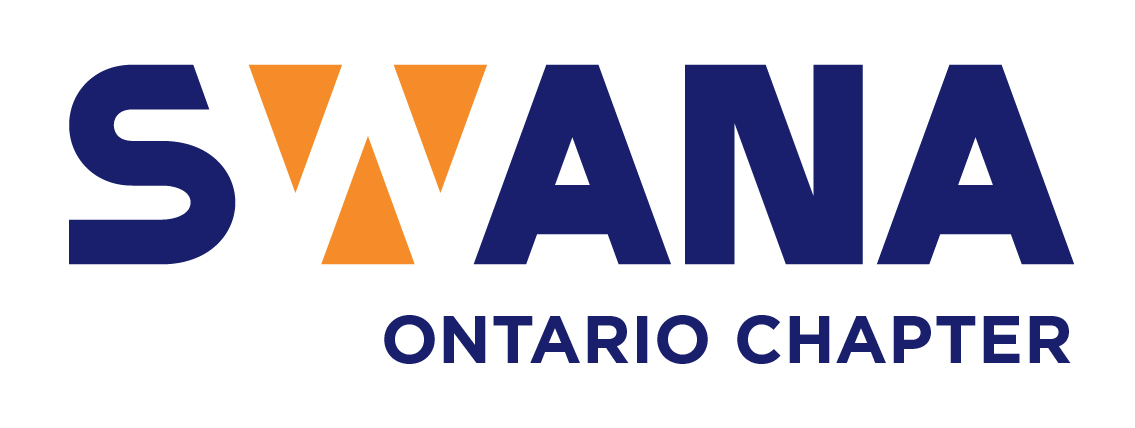Best Management Practices for Maintaining Continuity of Waste Services
‘Helpful tips from your Ontario waste facility neighbors’
To support you during the COVID -19 crisis, we have assembled a list of best management practices sourced from your local waste facility neighbors. These are suggestions that can be implemented as contingency measures and information to share with planners and service providers in helping to formulate what and to what level of services that will be provided.It is important for our waste management professionals dealing with so many difficult issues, to be able to have a common forum to bring together best management practices.
In this uncharted and stressful period, please reach out to your network of neighboring waste management professionals, offer support for one another, share ideas and resources. And, as recently quoted by one Chapter Board member, “and keep your head up”!
Suggested BMP for Maintaining Waste Services under the COVID-19 Pandemic
Handling COVID-19 Waste
- Current messaging from public health agencies (Public Health Agency of Canada, US Centers for Disease Control), occupational health and safety organizations (US Occupational Safety and Health Administration) and waste industry organizations (Solid Waste Association of North America (SWANA), National Waste & Recycling Association (NWRA)) is that municipal COVID-19 waste is regular household waste, with no special precautions required.
Facility Operations
- Carefully consider the closure of drop-off facilities. Many municipalities have closed facilities to limit contact between staff and citizens, and to prepare for staffing shortages. At the same time, many have observed a noticeable increase in random dumping as residents become irritated by the lack of available resources.
- Consider increasing the use of nonverbal communications through signage, websites, press releases and clearly identifying that anyone who is self-isolating will not be permitted on the site.
- Some operations are allowing free drop off in limited quantities as well as limiting materials accepted due to staffing constraints or recycling facilities closures.
- Consider limiting traffic to control the number of vehicles on site to ensure there is adequate distance between customers.
- Contemplate limiting the amount of help staff provide in assisting customers emptying their vehicles.
- Consider suspending the issuance of weigh scale bills to regular customers in favour of a daily summary or other form of load tracking.
- Propose limiting the collection of cash in favour of the use of credit cards, interact transactions, monthly billing, flat rate charges or waiving tip fees.
- Closing HHW depots – Several municipalities are closing HHW drop-off depots and asking residents to store materials safely in their residence. However, closing HHW depots could result in increased HHW materials in curbside collection programs.
- Determine what is essential and non-essential for your own service provision.
- Commercial waste volume decline – As businesses temporarily close, smaller haulers may lose business as well as the resulting decrease in revenue to support operations.
Population Surge in Cottage Country
- The impact of travel restrictions brought on by the virus to smaller communities is the return of cottagers to their cottages and vacation homes and overwhelming waste management facilities with both household and early spring-cleaning waste. The message here is to have plans in place that allow an early ramp up of summer services or ways of limiting waste.
Collection Suggestions
- Consider delaying the Spring start of the leaf and yard waste collection and temporarily ceasing the collection of bulky waste, allowing vehicles and crews to fill in any gaps for other programs (garbage / recycling / organics)
- For the collection of recyclable materials, consider requesting the residents who are questioning their health to bag all recyclables that may have touched their mouths and deposit them into the garbage.
- For green bin collection programs consider amending the participation rules by requesting that all used tissues and napkins be bagged and placed in the garbage stream, rather than the green bin.
- Consider limiting the hand collection of waste by limiting the ability for the residents to place loose materials outside of the container.
- If curbside collection cannot occur (i.e. due to worker unavailability), consider how to manage all waste through landfills or public drop-off facilities. Using public drop-off bins in the community is not allowed by MECP absent an ECA for that location. If considering a public drop-off in an unlicensed area, consult MECP in advance of making these arrangements.
Staffing Considerations
- Curbside waste and landfill operations should be top priority from a public health and essential service standpoint. Consider reallocating resources to maintain these services if other areas will be suspended.
- Consider the fact that the site attendant, who is maintaining the site operations with little support from supervisory staff, due to the office closures and modified work accommodation’s, will be the only person that the public comes face to face with, potentially encountering disgruntled citizens. It may be prudent to revisit your working alone procedures to ensure they are up to date and capture the current situation.
- The proper use of PPE is critical as it is in short supply. Safety talks should focus on ways to reduce the need for or prolonging the use of the existing PPE.
- Propose the creation of barriers to protect workers from customers as is now seen in grocery stores and the like.
- Provide the ability of employees to be able to wash their hands more often by placing additional washing stations in and around the workplace.
- Consider limiting the physical distancing between staff and citizens, one example would be limiting the need for exiting collection cabs to check a load for compliance and by taking photos instead for enforcement purposes.
- Consider limiting the number of people in a lunchroom, staggering coffee breaks and potentially shift times to lessen staff contact times and encouraging social distancing.
Sanitation Practices
- Practice wiping down/disinfecting the surfaces inside scale houses, collection vehicles and other shared/common areas at end of shift and before the start of the next one.
- Propose the elimination of community use items such as clipboards, time clocks, and signature pads.
|
|
|
Check these industry links often for BMP suggestions and resources.
|
|



